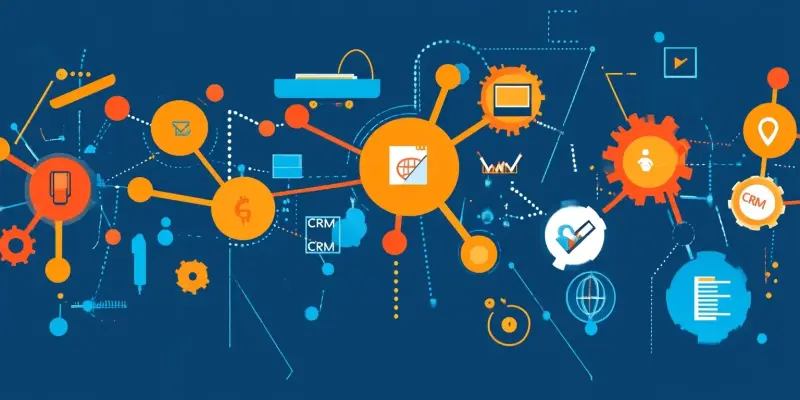In an age where student expectations and institutional demands are rapidly evolving, higher education institutions need innovative solutions to remain competitive and fulfill their missions effectively. One such technology that is transforming the landscape of higher education is Customer Relationship Management (CRM) software. This tool not only optimizes operations but also enriches the student lifecycle from recruitment to alumni engagement.
Student Recruitment
CRM software significantly enhances the student recruitment process. By generating leads, tracking inquiries, and segmenting prospects based on demographic profiles and interests, CRM systems create a centralized repository of data from various sources. These may include website inquiries, social media engagements, and event registrations. Such consolidation allows institutions to tailor their communication efforts, ensuring they reach potential students with personalized messages that resonate with individual needs and preferences. This targeted approach not only increases engagement rates but also bolsters the likelihood of converting leads into applicants.
Admissions Management
The complexity and rigor of the admissions process can be efficiently managed through CRM software, which provides real-time automated workflows. These workflows streamline the handling of application statuses, deadlines, interview scheduling, and document submissions. CRMs also integrate seamlessly with payment systems, making fee management more fluid and error-free. This multifaceted approach reduces the administrative burden on admission teams, freeing them to focus on more strategic tasks, while ensuring that applicants receive timely updates and notifications throughout their application journey.
Retention Strategies
One of the most critical areas where CRM software makes a tangible impact is in student retention. By analyzing data on student engagement and performance, CRMs identify those who may be at risk of dropping out. This information enables institutions to strategically deploy intervention measures tailored to individual circumstances. Personalized advising, academic support, and engagement activities are just a few ways that institutions can foster a supportive environment, ultimately reducing attrition rates and promoting student success.
Alumni Engagement
Maintaining robust relationships with alumni is crucial for higher education institutions, especially concerning fundraising and community building. CRMs track alumni interactions and involvement, creating comprehensive profiles that aid in tailoring outreach efforts. Institutions can design more effective fundraising campaigns and networking opportunities based on these detailed insights, ensuring that alumni feel valued and engaged with their alma mater.
Data-Driven Decision Making
CRM systems offer sophisticated reporting tools that provide actionable insights for higher education institutions. By analyzing data on application conversion rates, enrollment trends, and student satisfaction, institutions can make informed strategic decisions. Such data-driven insights enable schools to better allocate resources, refine recruitment strategies, and enhance overall student satisfaction and outcomes.
Benefits of CRM Software for Higher Education
Enhanced student experiences through personalized communication efforts, such as AI-powered chatbots and tailored email campaigns, are a notable advantage of CRM software. These tools ensure students remain informed and engaged throughout their academic journey. Furthermore, CRM software drives operational efficiency by automating repetitive tasks and integrating various platforms. This allows staff to focus on more critical and strategic activities. Improved collaboration between admission teams, faculty, and alumni offices is also a significant benefit, promoting a cohesive and coordinated institutional approach. Additionally, cloud-based CRM solutions provide scalable development options, enabling institutions to upgrade capabilities without significant infrastructure investments.
Challenges in Adopting CRM Solutions
Despite the advantages, some challenges may arise in the adoption of CRM solutions. One significant hurdle is the integration of disparate systems, which requires meticulous planning and technical know-how. Resistance to change is another common issue, as staff accustomed to legacy systems may be hesitant to embrace new technologies. This necessitates comprehensive training programs to ease the transition. Budget constraints also play a role, as the initial investment in CRM software can be substantial. Institutions must carefully evaluate the potential return on investment to justify the expenditure.
Emerging Trends
The integration of artificial intelligence (AI) and automation is an emerging trend in CRM software, enabling predictive analytics to forecast enrollment trends and identify at-risk students. Automation handles routine tasks, increasing overall efficiency. Personalization is also becoming more prevalent, with advanced segmentation tools catering to individual student needs and enhancing personalized experiences. Modern CRMs now seamlessly integrate with various platforms like Learning Management Systems and financial management tools, further boosting operational efficiency. Data security remains a top priority, with robust security measures such as encryption and compliance tools essential for protecting sensitive information.
Best Practices for CRM Implementation
For successful CRM implementation, institutions should define clear objectives and desired outcomes from the outset. Engaging stakeholders early in the process ensures buy-in and smooth transitions. Adequate time must be allocated for training personnel to use the system effectively. Regular monitoring of performance through key performance indicators (KPIs) is crucial for assessing the return on investment and making necessary adjustments to optimize outcomes.
Conclusion
In a time when student expectations and institutional requirements are shifting quickly, higher education institutions must adopt innovative solutions to stay competitive and achieve their goals effectively. One key technology revolutionizing higher education is Customer Relationship Management (CRM) software. This powerful tool not only streamlines administrative operations but also enhances the entire student lifecycle, from the initial recruitment process all the way through to alumni engagement. CRM software enables institutions to better manage relationships with prospective students, current students, and alumni by consolidating information and personalizing interactions. With the ability to track and analyze data, CRM systems help colleges and universities understand and anticipate student needs, leading to improved retention and satisfaction rates. Furthermore, these systems can automate many routine tasks, freeing up staff to focus on higher-value activities and strategic initiatives. In essence, CRM software is a game-changer for higher education institutions, driving efficiency, fostering meaningful connections, and ultimately, supporting their mission more effectively.

